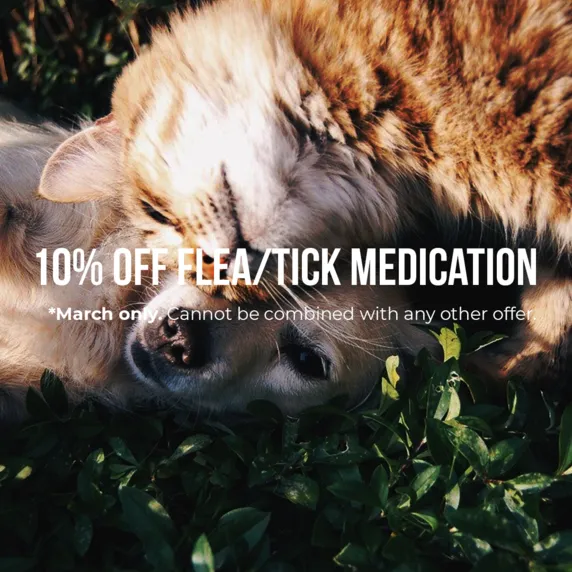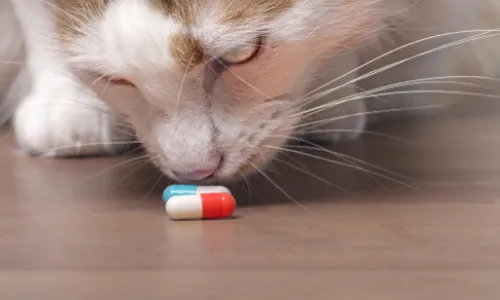Signs and symptoms of dementia may include:
- Restlessness. Your pet may wander around the house and be uninterested in remaining in one spot for very long. Pacing or walking in circles are common in dogs with dementia.
- Confusion. Dogs with CCD can become easily confused, even in their own homes. They may forget where their food dishes are or find it difficult to find their way from the upper to the lower level of your home. As the disorder worsens, your dog might even forget its name or fail to recognize family members.
- Sleep Changes. CCD can interfere with your pet's normal sleep/wake cycle. Your dog may roam your house all night and spend all day sleeping.
- Barking or Howling. Dogs with dementia may suddenly bark, howl, or whine for no apparent reason.
- Separation Anxiety. Some dogs become less interested in spending time with family members, while others can't bear to be away from you for a minute.
- Staring. Your pet may spend long periods of time staring into space.
- Irritability. Has your formerly mellow dog suddenly become irritable and aggressive? Behavioral chances are common in dogs that have dementia.
- Disinterest. CCD may cause your dog to lose interest in favorite toys, foods, or people.
- Housetraining Accidents. Your housebroken pet may suddenly start having accidents inside the house. Changes in the brain can make it difficult for your dog to remember that elimination should only take place outside. Some dogs may also have trouble with bladder or bowel control.
What to do if your dog has dementia?
A visit to the veterinarian is a must if you suspect that your dog has dementia. Some diseases and illnesses, such as brain tumors and tick-borne diseases, can cause symptoms similar to those that occur with dementia.
If your pet is diagnosed with CCD, your pet's doctor may make a few recommendations that could help your pet, including:
- Changing Your Pet's Diet. Today's Veterinary Practice reports that a diet rich in antioxidants may help reduce cognitive decline in pets with CCD. You can also give your dog supplements that may relieve or reduce dementia symptoms.
- Trying Prescription Medication. Your pet's veterinarian may prescribe selegiline hydrochloride, a drug that controls some of the symptoms of CCD. Other medications can be useful if your dog suffers from anxiety or depression related to dementia.
- Maintaining a Regular Routine. Changes are very confusing for pets with dementia. Following the same routine every day can help your dog feel more secure.
- Scheduling Regular Potty Breaks. Taking your pet outside several times a day is a simple way to reduce housetraining accidents.
- Regular Exercise. Exercise is particularly important for your dog's physical and mental well-being. While you're outside, play a new game with your pet or introduce a new toy. Mental stimulation is particularly important for dogs with CCD.
Are you concerned that your dog may have dementia? Contact our office to schedule an appointment here.

Keep Your Pets Safe From Toxic Household Items

Household Items That Are Toxic to Your Pet
Curious pets explore their environments by sniffing, licking, and tasting. Unfortunately, eating or licking cleaners, pills, plants, and other items may sicken animals. These common household items can cause illness or even death if your pet ingests or inhales them.
Cleaning Products
Swallowing or licking household cleaners can cause vomiting, trouble breathing or swallowing, or tissue damage. Pets can also become sick if they lick their fur or paws after walking through or coming in contact with a wet cleaning product. The Humane Society of the United States notes that cats are more vulnerable to poisoning from cleaning products because their bodies are smaller and don't handle toxins quite as well as dogs.
Strong fumes from chemical cleaners can cause respiratory problems in pets, particularly in birds.
Protect your pet's health by:
- Following Package Instructions When Using Cleaners
- Keeping Pet Away from Cleaners Until They Dry
- Storing Products Out of the Reach of Pets or in Cabinets with Child-Proof Latches
- Rinsing Sponges, Rags, Buckets, and Mops Immediately After You Use Them
- Opening Windows Before Using Products with Strong Odors and Moving Pets to Another Area of Your Home While You Use These Items
- Throwing Away Cleaning Wipes and Paper Towels Soaked with Cleaning Products Promptly
- Closing Cleaning Product Lids and Cap Tightly
- Disposing Cleaning Products and Wipes in a Trash Can with a Secure Lid
Over-the-Counter or Prescription Medication
Medications, even over-the-counter drugs, can cause serious side effects in pets. Some drugs may even cause liver or kidney failure. Every year, the ASPCA Poison Control Center releases a list of the top10 toxins reported to its helpline. In March 2020, they reported that over-the-counter medications were the top reason for pet owner calls. Prescription medications occupied the second spot, with antidepressants, attention-deficit/hyperactivity disorder (ADHD), cardiac, and thyroid medications high on the list.
Storing all medications out of your pet's reach will reduce the risk of accidental poisoning. It's a good idea to keep your pet's medication in a safe place too. If the medication is flavored, your pet may eat too much of it and overdose.
Foods
The foods you enjoy may not necessarily be safe for your pet. Foods that might cause toxic reactions include:
- Chocolate
- Onions
- Garlic
- Chives
- Grapes
- Raisins
- Alcohol
- Nuts (Macadamia nuts can be toxic, while pistachios and almonds pose choking hazards.)
- Apple Seeds
- Coffee, Tea, and Other Caffeinated Drinks
- Doughs That Contain Yeast
- Gum, Candy, and Other Foods Sweetened with Xylitol
Skincare Products
Skincare and grooming products may also include ingredients that are toxic to animals. Keep your pet safe by storing mouthwash, lotion, petroleum jelly, bar, and liquid soap, makeup, and other items in a place that is inaccessible to your pets.
Plants
Although poinsettias are only mildly toxic to pets, contrary to popular belief, plenty of other plants can make your pet very sick. The ASPCA notes that these plants are common culprits:
- Tulips
- Daffodils
- Lily of the Valley
- Oleander
- Autumn Crocus
- Dieffenbachia
- Hyacinth
- Azalea
- Cyclamen
- Lilies
- Kalanchoe
- Sago Palm
Home Improvement Products
Spackle may not look very appealing to you, but your pet may decide it's worth a taste. In addition to triggering vomiting, the product can clump together and form a blockage in your pet's digestive tract. Any product you buy at a hardware store may contain strong chemicals and other ingredients that are hazardous to your pet's health. As with other dangerous products, it's important to keep these items on a high shelf or another secure spot.
Other Products
Your pet may also become sick after ingesting essential oils, cigarettes, nicotine, and other types of medicated patches, insecticides, and garden products.
Following safe storage and disposal recommendations can help you avoid accidental poisonings. Call our office immediately if you're concerned that your pet may have come in contact with a toxic household product.
Month-Long Celebrations
- Poison Prevention Awareness Month
- Adopt a Rescued Guinea Pig Month
- National Frozen Food Month
Week-Long Celebrations
- March 1–7: Professional Pet Sitters Week
- March 21–27: National Poison Prevention Week
Day Celebrations
- March 1: National Pig Day
- March 3: If Pets Had Thumbs Day
- March 13: K-9 Veterans Day
- March 14: Learn About Butterflies Day
- March 17: St. Patrick’s Day
- March 17: Saint Gertrude of Nivelles Day (patron saint of cats)
- March 19: Poultry Day
- March 20: World Sparrow Day
- March 23: National Puppy Day
- March 23. Cuddly Kitten Day
- March 28: Respect Your Cat Day
- March 30: Take a Walk in the Park Day
March's Quote of the Month
“We can judge the heart of a man by his treatment of animals.” - Immanuel Kant, German Philosopher


